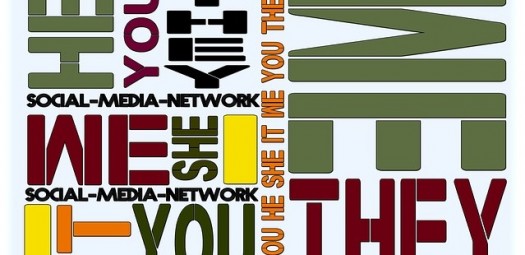Brands on social media are getting super competitive. Who doesn’t want to be associated with the next Ellen-Selfie Oscars phenomena? In 2014, most brands “get it.” They know their audience is on social media and that they need to be on it.

The competition is fierce, as more and more content is being produced in attempt to reach the same eyeballs. For better or worse, brands are hopping on hashtags, dumping ice buckets on mascots and posting their products across Vine, Instagram, YouTube, Facebook, LinkedIn, Twitter (you see where I’m going with this)…
Yes, social media has arrived. Hooray, drinks all around, right?
Not yet.
During Digital East, SVP of Social Ogilvy Leigh George announced the fall of organic social media reach and explained how native advertising paired with content marketing would be the key method for brands wanting to reach their audience online.
Here are some key takeaways from her session:
It’s Not About You
 If you manage a Facebook page, you feel lucky if your post reaches 6 percent of your audience don’t you? You’re not alone.
If you manage a Facebook page, you feel lucky if your post reaches 6 percent of your audience don’t you? You’re not alone.
“Unfortunately, many brands mistook social media as a platform for them, not their customer voices,” Leigh says.
Social sites have updated their algorithms making it more about consumers than the brands. Since 2012, there has been a sharp decline in organic social reach. The foundation of social networks has shifted. According to Leigh, social media in 2014 is less about sharing updates, but providing value.
Brands can no longer blast their audience with content. Social media has given consumers a huge platform for letting the world know what it thinks about everything from policy, current events and even brands. When crafting social content, Leigh advises that brands focus on their audience’s interests and needs before their own.
However, shifting focus from brand to consumer is only the first step in cutting through the noise.
Pay to Play

For years, money and social media didn’t belong in the same sentence…unless you were talking about hiring someone. Unfortunately providing value on social media isn’t enough to reach your audience. That’s where native advertising comes in.
Whether it’s a sponsored post, or having a quiz on Buzzfeed’s sponsored platform, native advertising allows you to achieve reach where your organic efforts fall short.
To be successful, your content needs to be engaging, transparent and fit your brand and the platform where you publish it.
Outside of Super Bowl Sunday, people do not look forward to ads interrupting their experiences. Leigh explains that before social media, brands used a “bullhorn approach and spray and pray.”
To effectively reach your audience, you can’t annoy them. Native advertising doesn’t mean you can just throw money at your reach problem. You need to think about the consumer and craft content that is “irri-clickable.”
Leigh’s tip, subscribe to David Ogilvy’s philosophy of wowing the customer, making your content so good, people don’t mistake if for an annoying, flashing pop-up.
Earn Trust

Brands have committed some big native ads blunders. Most of the big ones stem from a lack of transparency or failure to provide value to their audience.
“People feel deceived be native advertising,” Leigh says.
She goes on to explain this is because people aren’t used to something that’s not blatantly self-serving or looks like an ad. They’re certainly not expecting something that’s paid for to naturally become a part of the conversation.
To be successful in your native advertising endeavors, Leigh emphasizes the importance of brands building trust with their consumers.
Keep in mind that publications like The New York Times have had centuries to build trust. Other publications have had decades. To gain your audience’s trust, you need to consistently deliver quality content. This change won’t happen overnight, however it’s a step in the right direction.
How do you think brands will adapt to the shrinking reach of organic social media?
Want a competitive edge in social PR? See how the Vocus PR Suite can help. Sign up for a demo now!
Image: Terry Johnston![]()

